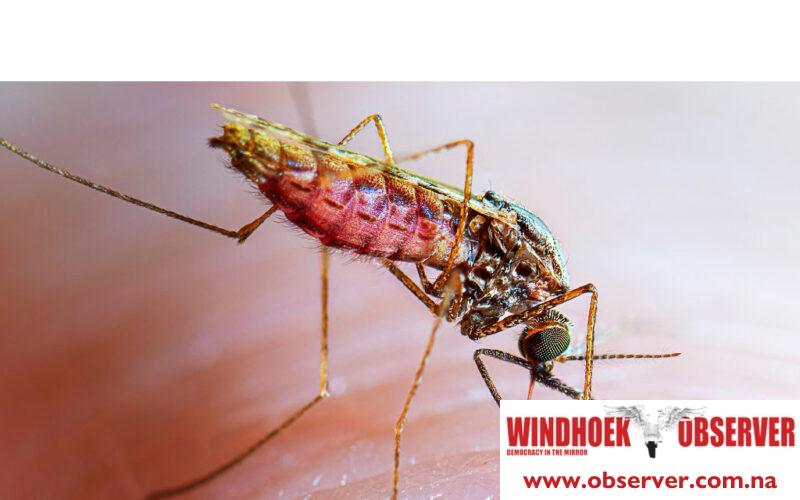Niël Terblanché
The Ministry of Health and Social Services (MoHSS) of Namibia has officially declared a malaria epidemic across various districts, following alarming statistics that have emerged in recent weeks.
The announcement comes in the wake of over 12 fatalities and the hospitalization of 133 individuals due to this mosquito-borne disease.
Ben Nangombe, the Executive Director of MoHSS, expressed deep concern over the surge in malaria cases, which has been particularly pronounced in all malaria-endemic regions of the country.
The epidemic has hit at least 15 districts, surpassing epidemic thresholds and experiencing outbreaks. These include Eenhana, Okongo, Engela, Onandjokue, Omuthiya, Tsumeb, Oshakati, Oshikuku, Outapi, Rundu, Andara, Nyangana, Nkurenkuru, Ncamagoro, and Opuwo, with Eenhana district alone reporting 592 cases or 21 percent of the total.
Nangombe attributed the sharp rise in cases to favourable climatic conditions for the malaria vector, the female Anopheles mosquito, and a lack of sufficient intervention measures such as Indoor Residual Spraying (IRS), which has seen sub-optimal coverage in recent years.
He added that delayed health-seeking behaviour by possible victims has been identified as a contributing factor to the severity of the cases, leading to an increased mortality rate.
Nangombe said, malaria, a disease caused by Plasmodium parasites, presents a spectrum of symptoms ranging from asymptomatic to severe and complicated cases, the latter often resulting in death if not treated promptly.
He added that vulnerable groups, including pregnant women, children under five, and immunocompromised people, are at a higher risk of developing severe complications.
In response to the epidemic, the MoHSS has issued an urgent call to all relevant departments and institutions to bolster routine surveillance, undertake active monitoring, conduct vector control interventions, and ensure the availability of malaria commodities.
According to Nangombe, community sensitization on prevention and early treatment-seeking behaviour is also a priority.
He said healthcare workers are urged to remain vigilant in diagnosing and treating malaria, with a focus on preventing the progression to severe disease.
Nangome stressed the importance of a coordinated effort among all stakeholders to curb the spread of this deadly disease and mitigate its impact on the population.
He said the collective action of health officials, community workers, and the public will be crucial in overcoming the epidemic and preventing future unmitigated outbreaks.




